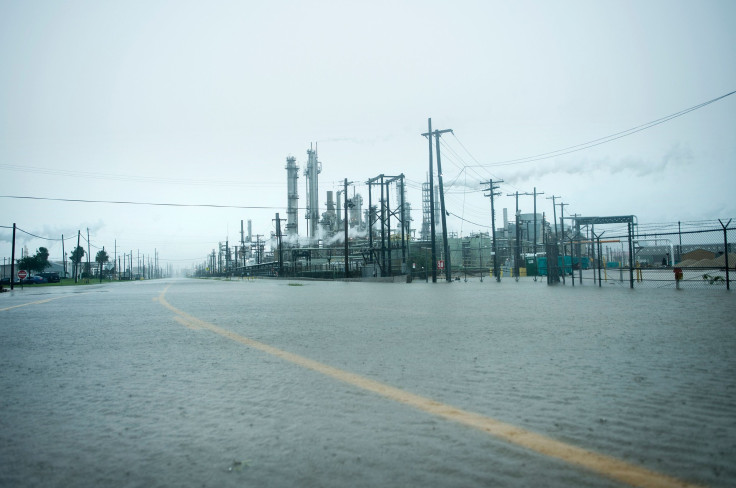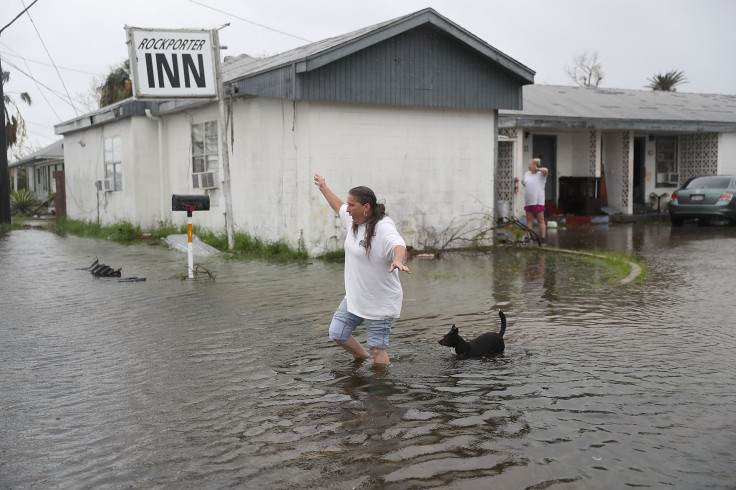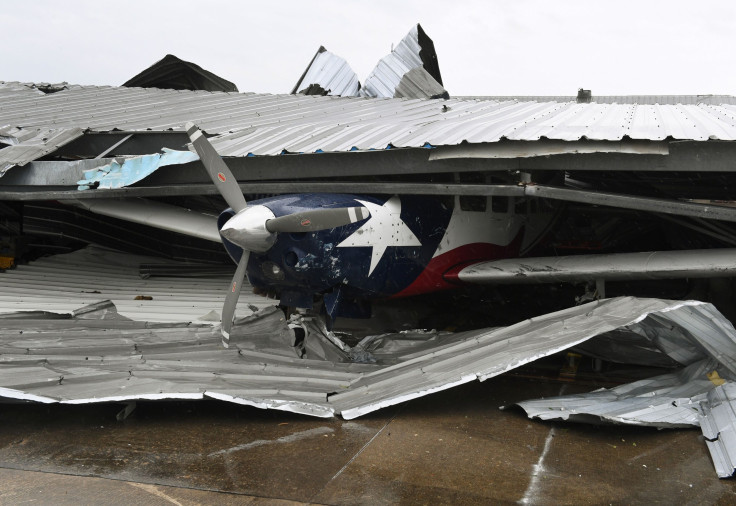Devastation Caused By Hurricane Harvey Could Increase Gas Prices

Hurricane Harvey has caused extensive damage in Texas, which is home to 29 petroleum refineries, meaning it could also impact motorists’ wallets.
Harvey was a Category 4 storm Friday around 11 p.m. EST. as it made landfall in Texas, hitting the city of Corpus Christi with 20 inches of rain and 130 m.p.h winds. The storm caused major damage to buildings, brought down trees and left nearly 300,00 without power.
Texas is home to over 5.4 million barrels of crude oil per day, and accounts for 30 percent of the country’s total refining capacity, according to the U.S. Energy Information Administration. On Friday, offshore oil and gas operators in the Gulf of Mexico were evacuating platforms and rigs before the storm hit, according to the Bureau of Safety and Environmental Enforcement (BSEE). Officials said about 22 percent of the oil production of 1,750,000 barrels of oil per day in the Gulf of Mexico was shut in Friday.
Hurricane Harvey was already disrupting the oil industry before the storm hit, Consumer Energy Alliance (CEA) President David Holt told International Business Times Friday evening.
“In the Texas Gulf region, we are already seeing gasoline stations having sold out of gasoline and diesel fuel based on increased demand,” said Holt. “With new fuel curtailed for a few days due to the storm, it will likely be a few days before many of these fueling stations have new supplies of gasoline and diesel.”

Although Harvey was downgraded to a Category 1 storm Saturday, officials fear the storm could continue for at least five days in Texas, with flooding likely to continue. Texas Gov. Greg Abbott said Saturday afternoon in a press conference areas in the state saw “dramatic flooding,” and said 20 more inches of rain could fall over the next few days in some locations.
“If there is a prolonged period of flooding that prevents normal refinery operations, then gasoline, diesel and other refined products, could be disrupted for a few days,” said Holt.
Catastrophic & life-threatening flooding is expected in SE Texas from heavy rainfall of 15-30 inches, with isolated totals up to 40" #Harvey pic.twitter.com/y2JV10zsBL
— National Hurricane Center (@NHC_Atlantic) August 26, 2017
Major damages to the region could increase oil prices.
“If there is an extensive disruption for many days, due to flooding or issues accessing refineries, then we could see price increases — both regionally and nationally,” said Holt. “The good news is that with the U.S. energy revolution, motorists across the nation are enjoying some of the lowest gasoline prices we’ve seen in decades. This is because we are producing more oil and natural gas here a home. Any national gasoline price increases, if they occur, will likely be very short.”
Holt pointed out 2008’s Hurricane Ike, a major storm that caused a “great deal” of damage to the Gulf Coast of Texas and parts of Louisiana. The storm caused temporary refinery outages, causing overall national and regional fuel prices to increase by a nickel per gallon for a few days as supplied tightened.

Holt said the U.S. refinery system “is very technologically advanced” and is prepared to withstand these types of storms.
“Any disruptions in refinery operations will be resolved as quickly and safely as possible,” Holt said.
The BSEE said after Hurricane Harvey passes, oil facilities will be inspected.
“Once all standard checks have been completed, production from undamaged facilities will be brought back on line immediately,” the bureau said Friday.
© Copyright IBTimes 2024. All rights reserved.





















